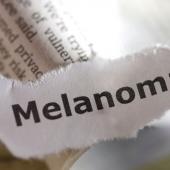Reishi, Turkey Tail, Shiitake, and Lion’s Mane are all medicinal mushrooms which, for thousands of years, have been anecdotally recognized for their nutritional value and medicinal properties. Since then, many carefully controlled studies have highlighted the benefits of using mushrooms for immune support, particularly in cancer patients. Cancer therapy using mushrooms, although very popular in East Asia, is still largely unknown in western countries, especially in conventional medical institutions.
So, the objective of this episode is to assess how practitioners can ensure that their patients are obtaining the full therapeutic benefit of medicinal mushrooms while avoiding some of the pitfalls. We are joined by Dr Michael Traub to help us understand the issues around prescribing medicinal mushrooms and to help us separate fact from fallacy. Dr Traub has had a distinguished career as a nutritionally-oriented naturopath with a special interest in medicinal mushrooms.
Key Take-Aways
- Key Roles For Mushrooms Medicinal mushrooms modulate the immune system in various ways. They have anti-neoplastic properties and they have been shown to decrease the angiogenesis in tumors, which is the reaction of the body to having the presence of a tumor. Medicinal mushrooms have also been found to be chemo-sensitizing, which means they make chemotherapy work better. The same thing is true with radiation in that mushrooms protect normal cells from damage from radiation.
- Additional Roles For Mushrooms Mushrooms have been found to be antidiabetic. They have effects in treating infections of all kinds, including viral, bacterial, fungal, and parasitic. Mushrooms are also potent antioxidants, can lower circulating cholesterol levels, and they protect the liver.
- Beta-Glucans Not all mushrooms are the same; certain mushrooms work in certain ways and are better for use in different biological systems. These differences are due to variations in the polysaccharide component of mushroom fruiting bodies. Mushrooms contain compounds called beta-glucans, long chains of sugar molecules, that differ across mushroom type. That is why certain mushrooms have been found to be good for breast cancer and other ones for colorectal cancer, because of their unique beta-glucan characteristics.
- Beta-Glucan Adulteration Beta-glucans are found not only in mushrooms but in other organisms including the cell walls of yeast, oats, barley, seaweeds, algae, and bacteria. This is one of the reasons why beta-glucan levels in mushroom products may be falsely claimed, because these may be from different sources. Considerable adulteration goes on in the commercial industry that use beta-glucans from other sources; these added beta-glucans that do not possess the same effects as those that come directly from authenticated mushrooms.
- Mushrooms And Prevention Of Cancer Mushrooms increase the effect of certain chemotherapies. Medicinal mushrooms in cancer are used not just in the context of chemo and radiation but also for prevention of recurrence. Moreover, for patients who are known to be at high risk but don't have any diagnosed cancer yet, mushrooms can be used.
- Two Leading Mushroom Types Two types of mushrooms have been identified as being the most effective: Turkey tail, or Coriolus versicolour, so-named because it resembles the different colors of a turkey. And the second, Reishi or Ganoderma lucidum. Both are indicated for use in cancer therapy.
- Effective Mushroom Preparation In most cases, a hot-water extraction method is best, and the careful practitioner must strive to recommend products that are made using the hot-water extraction process and not adulterated or contaminated. In the case of medicinal mushrooms, it is recommended that the practitioner does research to ascertain which companies have quality assurance programs in place.
Key Quote
“It's not just mushroom products that this issue of quality applies to, it's the whole supplement industry. People think that the problem is that natural products are not regulated by the FDA. But the fact is that they are regulated, but the regulations leave the quality assurance primarily to the companies. But the FDA has no way in terms of manpower to enforce quality.”
Dr Michael Traub
==
The opinions expressed in this Nutramedica program are those of the guests and contributors. They do not necessarily reflect the opinions of Nutritional Fundamentals For Health Inc.
This video is intended for licensed or registered health professionals and students of health professions only. These statements have not been evaluated by the Food and Drug Administration. Information contained in these programs is not intended to diagnose, treat, cure or prevent any disease.



